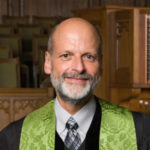 Good morning! I hope this day finds you and your family well, and I want you to know that you are in my prayers daily during this difficult time.
Good morning! I hope this day finds you and your family well, and I want you to know that you are in my prayers daily during this difficult time.
I invite you to take a few moments with me to reflect on today’s Upper Room Devotional below — as well as on the theology woven into “It is well with my soul.”
Today’s Scripture:
Deuteronomy 6:1-9 New Revised Standard Version (NRSV)
The Great Commandment
6 Now this is the commandment—the statutes and the ordinances—that the Lord your God charged me to teach you to observe in the land that you are about to cross into and occupy, 2 so that you and your children and your children’s children may fear the Lord your God all the days of your life, and keep all his decrees and his commandments that I am commanding you, so that your days may be long. 3 Hear therefore, O Israel, and observe them diligently, so that it may go well with you, and so that you may multiply greatly in a land flowing with milk and honey, as the Lord, the God of your ancestors, has promised you.
4 Hear, O Israel: The Lord is our God, the Lord alone.[a] 5 You shall love the Lord your God with all your heart, and with all your soul, and with all your might. 6 Keep these words that I am commanding you today in your heart. 7 Recite them to your children and talk about them when you are at home and when you are away, when you lie down and when you rise. 8 Bind them as a sign on your hand, fix them as an emblem[b] on your forehead, 9 and write them on the doorposts of your house and on your gates.
Tim’s Devotional Reflection for Today
Once one of the scribes—a scholar and teacher of the law—heard Jesus debating with some Pharisees, Herodians and Sadducees. He went to Jesus and said, “Which commandment is the first of all?” Jesus answered with the words of today’s scripture reading from Deuteronomy called the Shema—the Hebrew for the first word of this commandment: “Hear.” It is not only the central confession of faith for Judaism; it is also a critically important passage for the Church.
For centuries a Jewish home has always been recognizable from the outside by the presence of a mezzuzah. The mezzuzah is a small enclosed container which is affixed to the upper third of the doorway into a Jewish home. Size, shape, and design varies, but the mezzuzah literally fulfills the commandment to “write … on the doorposts …” the Shema. Rolled up inside the mezzuzah is a scroll inscribed with words from Deuteronomy on one side and the single word Shaddai (Almighty) lettered on the other. A small window in the mezzuzah allows the word Shaddai to be viewed from the outside. Another symbol connected to the Shema is tefillin or phylacteries – leather boxes worn as reminders of faith that are bound “on your hand and … as a symbol on your forehead” (Deuteronomy 6:8). One leather box is bound to the arm and hand, while the other is tied to the forehead. Both contain parchments inscribed with scriptural passages from Exodus and Deuteronomy stipulating the practice of wearing the tefillin (Exodus 13:9 and 13:16, Deuteronomy 6:8 and 11:18). The tefillin are worn every day when the morning service is prayed. Again these are visible, everyday symbols of faith which are passed on from generation to generation. They are the literal obedience to the Shema.
The text in Deuteronomy says, “Keep these words that I am commanding you today in your heart. Recite them to your children and talk about them when you are at home and when you are away, when you lie down and when you rise. Bind them as a sign on your hand, fix them as an emblem on your forehead, and write them on the doorposts of your house and on your gates.” If we do not practice this literally, then how do we practice it?
Writer/editor Michael Davis of the Baltimore Jewish Times, who taught religious education at his Reform synagogue on Sundays, witnessed with sadness the level of indifference religious education took in the lives of his students and their parents. Contrasting the intensive, rigorous scrutiny and concern those parents directed towards their children’s secular education, Davis observed that “… many are seemingly incapable of caring about what happens on Sunday. They roll up to the temple, drop off their kids and expect that, when they pick them up two and a half hours later, they’ll have been transformed into Jews. I call this ‘Dry Clean Judaism.'” Davis goes on in his article to remind those parents and all his readers that religious life cannot be confined to a few hours every weekend. “Judaism,” he concludes, “is a way of life, a 24-hour, seven-day-a-week blueprint to approach and respond to life.” (Michael Davis, “Dry Clean Judaism,” Baltimore Jewish Times, 5 November 1993, 18.)
THAT is how we practice these words from Deuteronomy. We make our learning and our teaching a part of who we are, how we relate, what we say to our children and to our children’s children. And we do that 24-7-365.
Thank you for sharing this early moment of your day with me, with God, and with the words and music that I hope you will carry with you throughout the coming day and night.
I am so grateful for you, for our church, and for the Love that will see us all through this very difficult time. Please stay safe and well and we’ll be together again in spirit tomorrow morning!
Grace and Peace,
![]()
Dr. Tim Bruster
Senior Pastor
Here’s more about this passage of scripture via Upper Room devotionals:
GRANDMA’S FAITH
How can I be an example of faithful witness to others?
read more
